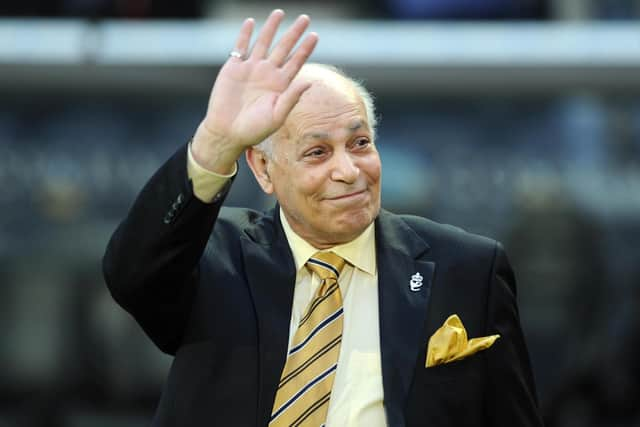Assem Allam dead: Hull City owner's mistakes overshadowed the good times
The Egyptian-born businessman only passed ownership of the Tigers to current chairman Acun Ilicali in January, though he had been looking to sell for a number of years.
Allam oversaw a period of unprecedented success at the club, but his attempt to change its name brought a rift with supporters he could never heal.
Advertisement
Hide AdAdvertisement
Hide AdAllam moved to East Yorkshire in 1968 to study at the University of Hull, and his affinity to the region remained for the rest of his life. In announcing his death, son Ehab revealed he will be buried in the city.


In his attempts to give something back, Allam donated millions of pounds to the city's hospitals, gifted £1m to Hull Kingston Rovers rugby league club but most significantly for how he will be remembered in his adopted city, he bought its football club in December 2010.
The club had recently been relegated after consecutive Premier League seasons, and on his watch it returned to the top-flight for two more spells – in 2013-15 and 2016-17. They also reached their first FA Cup final, beaten 3-2 in extra-time by Arsenal in 2014 despite James Chester and Curtis Davies having put them 2-0 up inside ten minutes.
That saw them play European club football for the only time in their history, beating AS Trencin in the third qualifying round before losing a play-off on away goals to Belgian side Lokeren.
Advertisement
Hide AdAdvertisement
Hide AdBut by then, Allam's standing with supporters had already been damaged.


In August 2013 he announced plans to drop the club's 109-year old name and be “marketed” as Hull City Tigers locally and Hull Tigers further afield. That, and his dismissive response to the inevitable complaints from supporters marked the point of no return between them.
In April 2014, the Football Association officially rejected the request. Measures to further protect the heritage of clubs is one of the key recommendations in Tracey Crouch's fan-led review of football.
The removal of concessions for some supporters in 2016 only further damaged relations, as did the resignation of Steve Bruce – the manager who led them to Wembley and Europe – on the eve of the following Premier League campaign because he was unhappy at what he saw as a lack of backing in the transfer market.
Advertisement
Hide AdAdvertisement
Hide AdThe alienation was reflected in attendances, and by late 2017 Allam was making it known the club was up for sale, though it would take more than four years to find a buyer willing and able to meet his demands. By then, he had handed the day-to-day running of the club to son Ehab.


For someone so keen to give something back to Hull, it is sad Allam's legacy to its football club is so mixed, and that the bad bits far overshadow the good.
At least the early signs are positive that successor Ilicali has learnt from his mistakes.